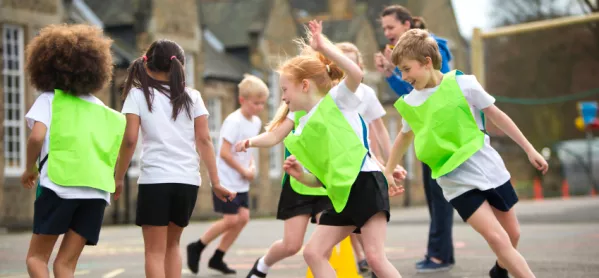Regardless of your level or ability, participation in sport and physical activity is a fundamental human right. Sport provides a number of psychosocial and physical benefits for children with disabilities, and teachers have a crucial role to play in shaping the early sporting experiences of these children.
However, some teachers find the prospect of leading physical activity daunting, especially when they have students with disabilities in their classes. Many teacher training programmes neglect to cover inclusive sport and the complex nature of some impairments can add a further layer of difficulty for teachers to manage.
The reality is that some teachers can, understandably, lack the confidence and knowledge to design and lead sporting activities for children with disabilities. These are important cultural, social and individual challenges to overcome.
However, there are some things you can do to help children with disabilities take the first step into sport:
- Talk to the child and their immediate support network
This is a goldmine of information. What do they love to do? What can’t they do, or more importantly, what can they do? All these nuggets of information help you to centre a session firmly on the child’s needs and help you to understand that progress for children with disabilities takes many forms. For instance, for a child with cerebral palsy, controlling and manipulating a ball may be as significant and worthwhile as a child with autism discovering a profound love for trampolining. Be patient, understand their capabilities, set broad goals and challenge accordingly.
- Change how you interpret ‘disability’
Teachers need to be aware of the assumptions they make about the implications of children’s impairments. If you believe that children are ‘disabled’ by their impairments, it can be very easy to fall into the trap of thinking that somebody in a wheelchair cannot, for instance, play football. Instead, I suggest you turn this idea on its head and look at how children can be ‘disabled’ by the rules of the sport or the attitude of the teacher, rather than by their bodies. I’ve worked with a boy with no arms who played cricket. If you are flexible, then anything is possible.
- Learn as you go
You can learn so much from just one teaching session. What worked well? What didn’t? Providing a space for children with disabilities to play with freedom and to express themselves can be one of the most rewarding things you can do. In the same way the children learn from you, you will learn from them. Be creative and have fun with it.
Robert Townsend (@robtownsendUK) is a PhD researcher with the Peter Harrison Centre for Disability Sport at Loughborough University. He is also a cricket coach, and works with a number of players in disability cricket with both physical and learning disabilities.
